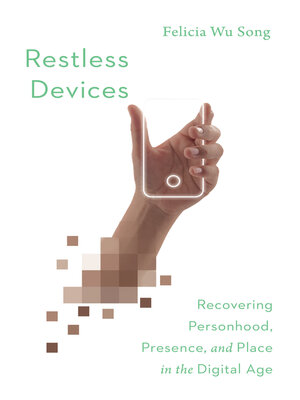Restless Devices
ebook ∣ Recovering Personhood, Presence, and Place in the Digital Age
By Felicia Wu Song

Sign up to save your library
With an OverDrive account, you can save your favorite libraries for at-a-glance information about availability. Find out more about OverDrive accounts.
Find this title in Libby, the library reading app by OverDrive.



Search for a digital library with this title
Title found at these libraries:
| Library Name | Distance |
|---|---|
| Loading... |
We're being formed by our devices. Today's digital technologies are designed to captivate our attention and encroach on our boundaries, shaping how we relate to time and space, to ourselves and others, even to God. Our natural longing for relationship makes us vulnerable to the "industrializing" effects of social media. While we enjoy the benefits of digital tech, many of us feel troubled with its power and exhausted by its demands for permanent connectivity. Yet even as we grow disenchanted, attempting to resist the digital "powers that be" might seem like a losing battle.
Sociologist Felicia Wu Song has spent years considering the personal and collective dynamics of digital ecosystems. She combines psychological, neurological, and sociological insights with theological reflection to explore two major questions:
Song unpacks the soft tyranny of the digital age, including the values embedded in our apps and the economic systems that drive our habits. She then explores pathways of meaningful resistance that can be found in Christian tradition—especially counter-narratives about human worth, embodiment, relationality, and time—and offers practical experiments for individual and communal change.
In our current digital ecologies, small behavioral shifts are not enough to give us freedom. We need a sober and motivating vision of our prospects to help us imagine what kind of life we hope to live—and how we can get there.







